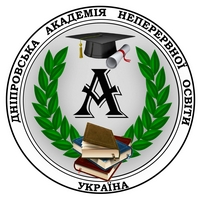PUBLIC ADMINISTRATION METHODS TO ENSURE THE STABILITY OF THE QUALITY OF EDUCATION UNDER MARTIAL LAW
Abstract
The article examines the peculiarities of the modern educational environment of Ukraine in the conditions of martial law, in particular, the problems and challenges that arise during the educational process against the background of military operations. The author focuses on the impact of air raids, shelling and other forms of military danger on the organization of education, as well as the specifics of training in these conditions. One of the important aspects is educational migration, in particular, the movement of students and teachers both within the country and abroad, which became a necessity in the war. Special attention is paid to various forms of education, which have become the main format in many educational institutions during crisis situations, in particular, in conditions of continuous hostilities. Methods and ways of solving educational problems are studied, which are able not only to stabilize, but also to improve the quality of education as a whole, taking into account limited resources and difficult conditions. The methods of public administration regarding the support and development of the educational process are considered, which allow to ensure the continuity of education and the adaptation of educational programs to new realities. The author notes that the military actions led to significant economic, political and physical destruction in the educational sector of Ukraine. Educational institutions suffered both structural and technical damage, which endangered the normal functioning of the educational process in many regions of the country. The article is aimed at identifying effective management methods that allow you to adapt the educational system to crisis circumstances, maintain the continuity of the educational process and provide the necessary conditions for the work of educational institutions, ensure the flexibility and stability of educational organizations in emergency situations. Attention was focused on the issues of adapting curricula and programs, introducing distance learning, ensuring the safety of participants in the educational process, and organizing training in conditions of air raids and shelling. Based on the analysis of the current situation, the article offers recommendations for the heads of educational institutions to effectively respond to the challenges of martial law and minimize the negative consequences for the quality of education.
References
2. Дослідження якості організації освітнього процесу в умовах війни у 2023/2024 навчальному році. ДСЯО за підтримки SURGe. 2024. с. 72
3. Домбровська С. М., Мороз С. А., Романовський О. Г. та ін. Дистанційна форма здобуття вищої освіти: аналіз думки студентів щодо якості, переваг і недоліків. Інформаційні технології і засоби навчання, 2020. Том 79, №5. С. 276-295
4. Музичук О. М., Наконечна Г. Я. Адаптація форм та методів публічного адміністрування до умов воєнного стану. Вісник ЛННІ ім. Е.О. Дідоренка. 2024. Вип. 1(105). С. 176-185
5. Огнев’юк В. О., Луговий В. І. Проблема кількості та якості у вищій освіті в контексті університетської мережі в Україні. Educological discourse, 2022. № 2 (37). С. 1-17
6. Сиченко В. В, Березинський В. П, Вільхова Т. В, Кравченко Л. А. Освіта в умовах пандемії: можливості та загрози дистанційного навчання. Публічне управління та регіональний розвиток. 2022. №1, С. 146-171
7. Шевченко Н. О. Впровадження мережевої форми здобуття освіти як механізму підвищення якості загальної середньої освіти. Наукові перспективи. 2024. № 3. С. 466-476

 ISSN
ISSN  ISSN
ISSN 

